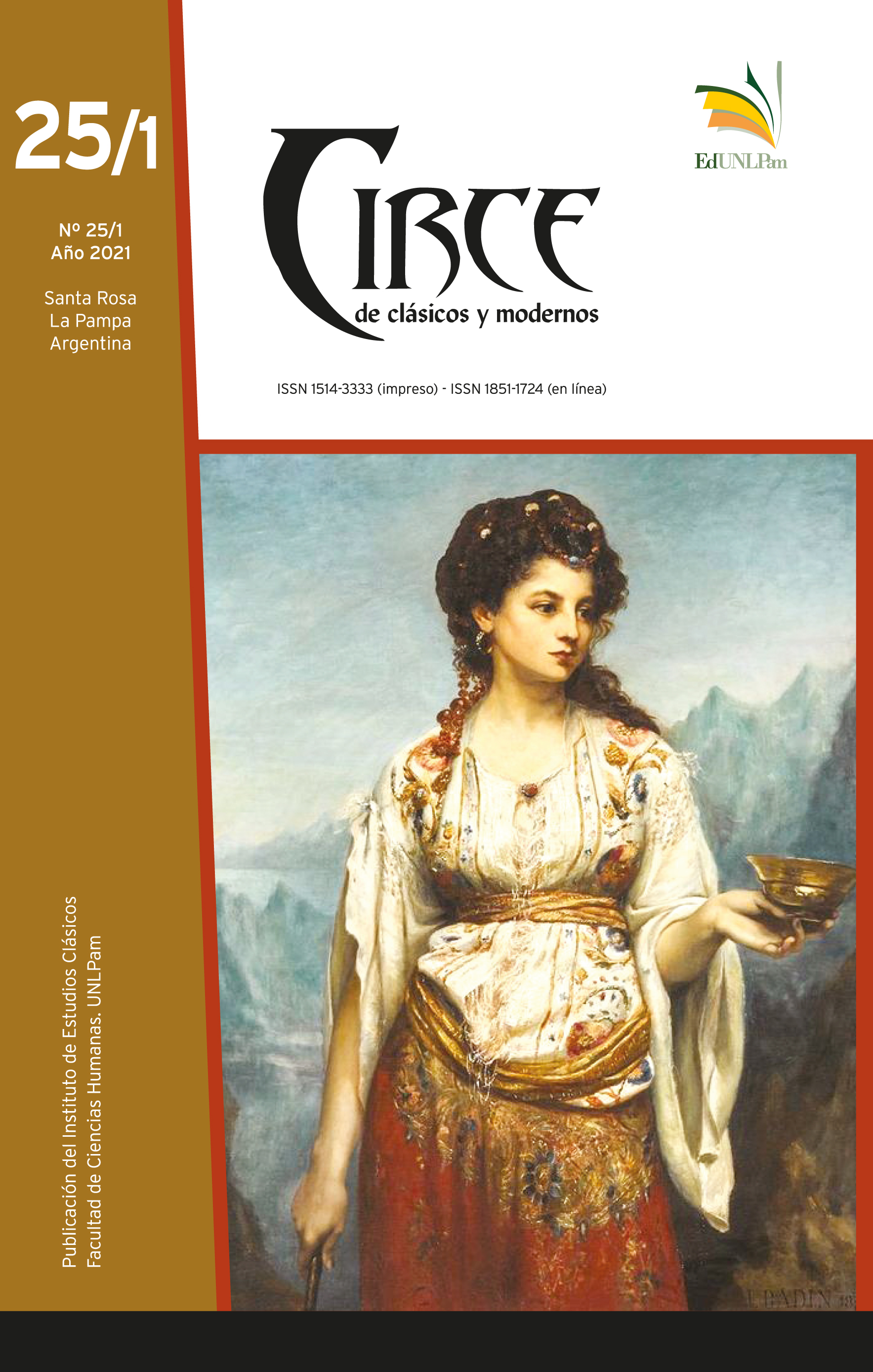El comienzo de la vida según Jámblico. En torno a la embriología en De anima
Palabras clave:
Jámblico, embriología, Neoplatonismo, estoicismoResumen
La sección 32 del tratado De anima de Jámblico comienza con el análisis de tres posibles explicaciones acerca del modo en que el alma ingresa en el cuerpo. Las dos primeras son anónimas mientras que la tercera es atribuida por el filósofo de Calcis a los seguidores de Plotino. El tema se anuncia en la sección anterior (31) en la que puede leerse desde el principio una referencia a “Hipócrates el Asclepíade” que conecta con una sentencia anterior que se ha perdido y que marcaría el comienzo de la argumentación. Como posible fuente de Jámblico se suele citar a Porfirio, quien incluye las opiniones de Hipócrates, de un filósofo anónimo y de Numenio de Apamea sobre el momento en que comienza la vida y el alma se asocia de manera natural con el cuerpo. En el desarrollo de estas argumentaciones se aprecia un conocimiento implícito de las hipótesis embriológicas de la época.
Descargas
Publicado
Número
Sección
Licencia
Los autores que tengan publicaciones con esta revista, aceptan los términos siguientes referidos a los derechos de autor/a:
1. Los autores/as conservarán sus derechos de autor y garantizarán a la revista el derecho de primera publicación de su obra, el cuál estará simultáneamente sujeto a la Licencia de reconocimiento de Licencia Creative Commons Atribución-NoComercial-CompartirIgual 4.0 Internacional (http://creativecommons.org/licenses/by-nc-sa/4.0/). que permite a terceros compartir la obra siempre que se indique su autor y su primera publicación esta revista. El autor es el titular del copyright.
2. Los autores/as podrán adoptar otros acuerdos de licencia no exclusiva de distribución de la versión de la obra publicada (postprint) siempre que se indique la publicación inicial en esta revista. La cesión de derechos no exclusivos implica también la autorización por parte de los autores para que el trabajo sea depositado en el repositorio institucional y difundido a través de las bases de datos que el editor considere adecuadas para su indización, con miras a incrementar la visibilidad de la publicación y de sus autores.
3. Se permite y recomienda a los autores/as difundir su obra a través de Internet antes y durante el proceso de envío, lo cual puede producir intercambios interesantes y aumentar las citas de la obra publicada.







.jpg)









2.png)



